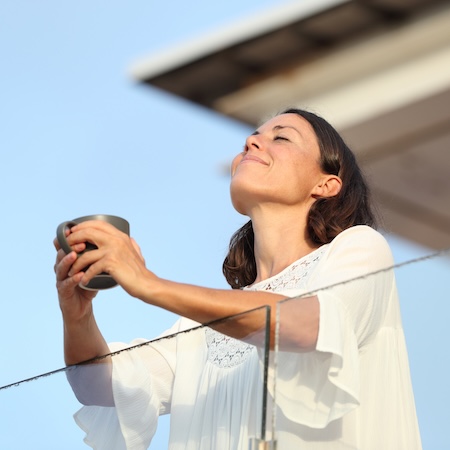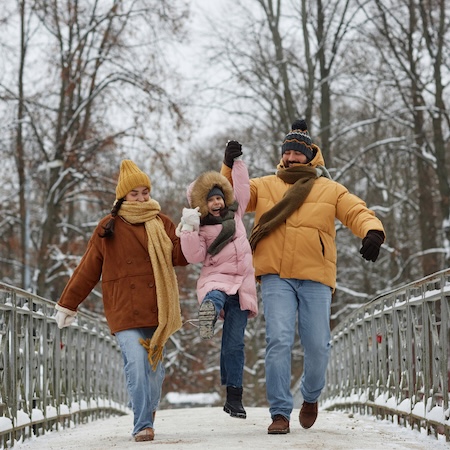The phone, sunlight and sound sleep. By Marc Sorenson, EdD.
The phone is ubiquitous, and it may be taking away a basic human need: sound and restful sleep.
How should the sleep/wake cycle work?
First of all, we awake to bright sunshine. Light enters the eye and stimulates serotonin production. Serotonin is a natural “upper” and mood elevator. Thus, we quickly become awake and invigorated. The bright sunshine also suppresses melatonin, the sleep inducer. Yet at evening light disappears (at least that is how nature intended it), melatonin levels rise, and serotonin levels diminish. We begin to feel sleepy and ideally retire for a good night’s rest. It is a perfect system for our needs—unless we stay up beyond biologically natural hours by using artificial lighting.
Then, the phone throws a wrench into the works!
Particularly, a phone, tablet, computer monitor and other electronic device that emits blue light can interfere with sleep cycles. This may leave you wide-awake and staring at the ceiling when you should be sleeping peacefully. Furthermore, you may feel “out of sync” the next day due to lack of rest. We hear a plethora of advice about using blue-blocker screens, and heaven forbid, giving up the devices at night! Regrettably, however, some humans would rather die than not check their devices just before, and many times during, bedtime. Perhaps they are incorrigibly addicted to the phone, tablet, etc. In addition, such activities inhibit melatonin secretion. Best to eschew the phone by night and embrace the sun by day!
So, is there any way to cater to our phone addictions and still get some shut-eye?
An interesting study showed that exposure to constant bright light, for several hours daily, stopped sleeplessness and let melatonin dominate at night. The researchers compared subjects reading a book (no blue light) and a tablet (lots of blue light). They also assessed sleep patterns and melatonin concentrations. Both groups had identical results for melatonin and sleep patterns. From this research, it appears that we can have our cake and eat it too, provided we receive plenty of sunlight. Most noteworthy was that it was not lack of blue light (when the devices were removed) that enhanced sleep. Rather, it was the bright light exposure in the day. Hence, we can evade sleep-deprivation punishment for  excessive device use if we take our time in the sunlight!
excessive device use if we take our time in the sunlight!
So is there other research indicative of the night-time-sleep-inducing effects of daytime sun exposure?
There are several. For a full discussion, I suggest you read my book, Embrace the Sun, co-authored by Dr. William Grant.
Another investigation established that people whose workplaces have windows are able to sleep about 46 minutes per night longer on average, than those who have no natural light access. Those with windows also are generally happier, have fewer ailments, and experience better vitality than their window-less counterparts.
Why is sleep so important to health, regardless of cell phone, sunlight, etc.?
Another article shows that too little sleep can be deadly. Forbes Magazine online printed an excellent article on sunlight and sleep, which listed the following horrendous statistics: “In 2012, 60 million Americans filled prescriptions for sleeping pills, up from 46 million in 2006.” The article discusses the potential dangers of sleep medications, showing that those who take 18 sleeping pills per year have a tripling of the risk of death compared to those who take fewer than 18.
Do not expect the drug companies to be touting these stats. Take matters in your own hands and get some daily, non-burning sun exposure. In addition, read Embrace the Sun,
Happy sunning!


